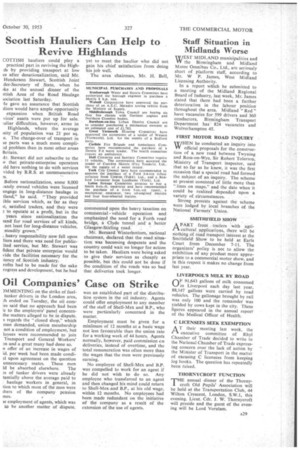Oil Companies' Case on Strike
Page 31

If you've noticed an error in this article please click here to report it so we can fix it.
AIMENTING on the strike of fueltanker drivers in the London area,
ended on Tuesday, the oil comes said that no approach had been Le to the employers panel concernthe matters alleged to be in dispute. s regards the 'closed shop," which men demanded, union membership not a condition of employment, but Ioyees were recommended to join Transport and General Workers' 311 and a great many had done so. n offer of an increase in wages of id. per week had been made condi
upon agreement on the question unnecessary mates. These men Id be absorbed elsewhere. The as of tanker drivers were already tantially above the average paid to haulage workers in general, in tion to which most of the men were tbers of the company pension ines.
le employment of agents, which was to be another matter of dispute, was an established part of the distribution system in the oil industry. Agents could offer employment to any member of the staff of Shell-Mex and B.P., who were particularly concerned in the matter.
Employment must be given for a minimum of 12 months at a basic wage not less favourable than the union rate for a working week of 94 hours. Agents normally, however, paid commission en deliveries, instead of overtime, and the total remuneration was often more than the wages that the men were previously earning.
No employee of Shell-Mex and B.P. was compelled to work for an agent if he did not wish to do so. Any employee who transferred to an agent and then changed his mind could return to Shell-Mex -and B.P„ at his old wage, within 12 months. No employees had been made redundant on the initiative of the company as a result of the extension of the use of agents.




















































































